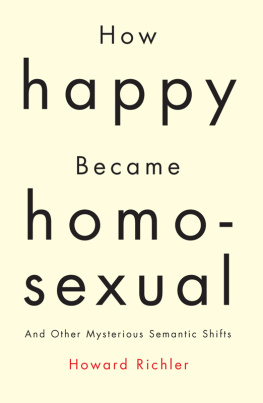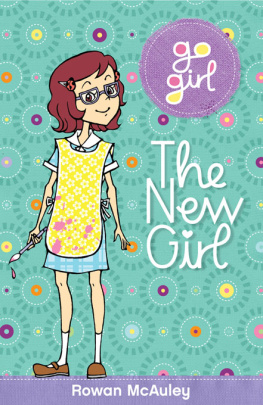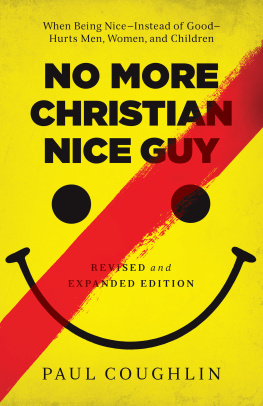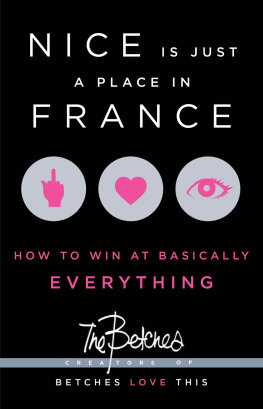How Happy
Became Homosexual
and Other Mysterious
Semantic Shifts

OTHER BOOKS
BY HOWARD RICHLER
Strange Bedfellows: The Private
Lives of Words (2010)
Can I Have a Word with You? (2007)
Global Mother Tongue: The Eight
Flavours of English (2006)
A Bawdy Language: How a Second-Rate Language
Slept Its Way to the Top (1999)
Take My Words: A Wordaholics Guide to the
English Language (1996)
The Dead Sea Scroll Palindromes (1995)
How Happy
Became Homosexual
and Other Mysterious
Semantic Shifts
Howard Richler
RONSDALE PRESS
HOW HAPPY BECAME HOMOSEXUAL
Copyright 2013 Howard Richler
All rights reserved. No part of this publication may be reproduced, stored in a retrieval system, or transmitted, in any form or by any means, without prior written permission of the publisher, or, in Canada, in the case of photocopying or other reprographic copying, a licence from Access Copyright (the Canadian Copyright Licensing Agency).
RONSDALE PRESS
3350 West 21st Avenue
Vancouver, B.C. Canada V6S 1G7
www.ronsdalepress.com
Typesetting: Julie Cochrane, in Granjon 11.5 pt on 15
Cover Design: David Drummond
Copy Editor: Shed Simas
Paper: Ancient Forest Friendly 70lb Rolland Opaque FSC Recycled 100%
post-consumer waste, totally chlorine-free and acid-free.
Ronsdale Press wishes to thank the following for their support of its publishing program: the Canada Council for the Arts, the Government of Canada through the Canada Book Fund, the British Columbia Arts Council, and the Province of British Columbia through the British Columbia Book Publishing Tax Credit program.
Library and Archives Canada Cataloguing in Publication
Richler, Howard, 1948
How happy became homosexual: and other mysterious semantic
shifts / Howard Richler.
Includes bibliographical references.
ISBN 978-1-55380-230-3 (print)
ISBN 978-1-55380-231-0 (ebook) / ISBN 978-1-55380-232-7 (pdf)
1. English language Etymology. 2. English language History.
I. Title.
PE1574.R519 2013 422 C2012-907706-2
At Ronsdale Press we are committed to protecting the environment. To this end we are working with Canopy (formerly Markets Initiative) and printers to phase out our use of paper produced from ancient forests. This book is one step towards that goal.
Printed in Canada by Marquis Book Printing, Quebec
To Judah, Maya
& Eddie
ACKNOWLEDGEMENTS
I want to thank my publisher Ronald Hatch for his sound advice and watchfulness and to Carol Broderick for her unflagging editorial skills. Also, I must thank the countless badgering readers who inspired this book by asking me how the word gay morphed in meaning.
Everything flows and nothing stays.
HERACLITUS
How Happy
Became Homosexual
and Other Mysterious
Semantic Shifts

INTRODUCTION

The Times (and Meanings of Words)
They Are a-Changin
ALTHOUGH IN THE MIDDLE AGES it is unlikely that gold fetched over $1,500 an ounce, we should still pity the alchemists of the time who laboured futilely to turn lead into gold. All they had to do to perform such a metamorphosis (at least semantically) was to create a simple series of synonym chains. Let me explain how this black art can be completed. For example, to turn black into white we follow these steps: Black dark obscure hidden concealed snug pleasant easy simple pure White. Macbeths witches must have been on to something when they realized that fair is foul and foul is fair because, in the same manner, the word ugly transmogrifies into beautiful: Ugly offensive insulting insolent proud lordly majestic grand gorgeous Beautiful. This legerdemain doesnt appear quite so impressive when we reveal that the word pretty originally meant cunning and it came to mean beautiful through the following stages: Pretty cunning clever fine nice Beautiful. In fact, we can empirically prove the veracity of the relativism of postmodern theory by showing how true is indeed false: True just fair beautiful pretty artful artificial fake False.
In fact, many words have undergone changes in meaning that allow us to trace a similar process. The word nice (see page ) went through a transformative process from its original sense of happy to todays prevalent sense of homosexual.
It can even be explained how a particular word can evolve contradictory meanings. With the word fast we start off with a sense of immovable or firm as in standing fast. From the sense of standing fast we developed the concept of running fast, and hence the rapid sense of the word. Similarly, fine originally denoted something slender, and this led to a sense of highly finished, which in turn led to a sense of beautiful. In situations where large growth is appreciated, the word fine can be seen as large, notwithstanding that the word started its life as slender.
In his book The Broadcast Word (1935) Welsh linguist Arthur Lloyd James commented, A language is always changing: we are not looking at a lantern-slide, but at a moving picture. To demonstrate the turbulence in word meanings, I have concocted the following alphabetically arranged ber-short story, which I have entitled The Admiral and the Juggler. (The italicized words represent the original meaning of the word.)
The admiral (emir), while visiting Bedlam (Bethlehem), captivated (captured) a divan (council of state in Turkey) and entreated (treated) the fickle (treacherous) grub (short person) to a spectacle by an honest (comely), impudent (immodest) juggler (jester and musician). The juggler, while but a knave (boy), was able to make lingerie (linen items) disappear and meat (food) appear out of thin air. He then had the emirs niece (granddaughter) occult (hidden) as a prank (malicious trick), and the bereft admiral, thinking his niece had been quelled (killed), was about to order a raid (military foray made on horseback) to make a sample (example) of the jugglers perfidy. The knave, however, had no talent (inclination) to challenge the admiral and ended his uncouth (malicious) performance and had the virgin (unmarried girl) re-appear. The mollified admiral advised the lad in future to be witty (sensible), and the relieved performer, with a yawn (open mouth), devoured some zest (orange peel). Apparently there is no word in English beginning with x that has changed its meaning significantly.
Unfortunately, the constant state of flux in word meanings has not been widely recognized, even by many intellectuals. Some two decades ago I reviewed a book by a Canadian woman named Victoria Branden entitled In Defence of Plain English in which she made some preposterous statements. She asserted that the word livid doesnt mean angry; it means of a bluish leaden colour. She also claimed that demise should only be used as a legal term associated with the transfer of property. Why? Because these were the original meanings of these words?
By the time Branden wrote her book this attitude toward words was becoming moribund, but it was quite common in earlier eras. Hence, writer Ambrose Bierce (18421913) argued that the term dilapidated could only be used for a stone structure because that was the original meaning. (










